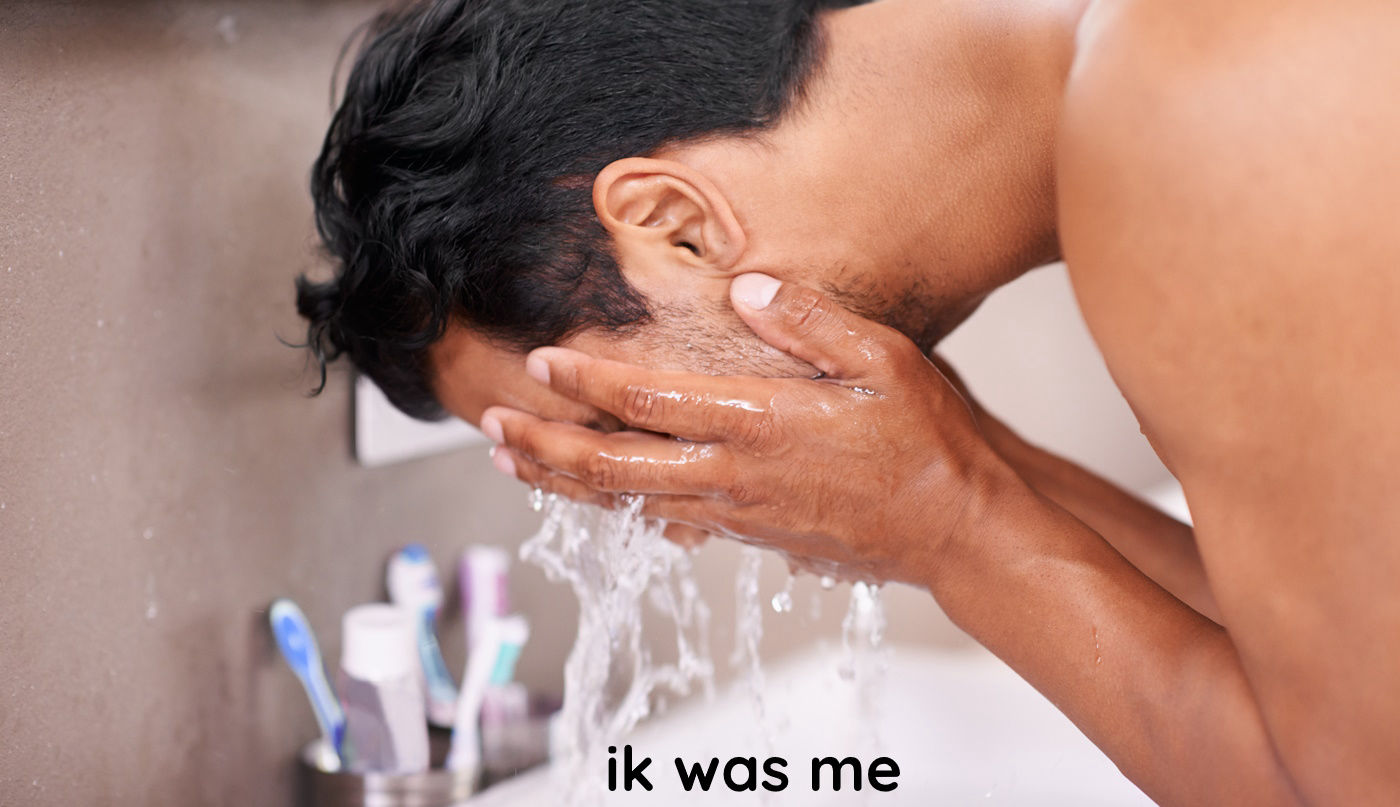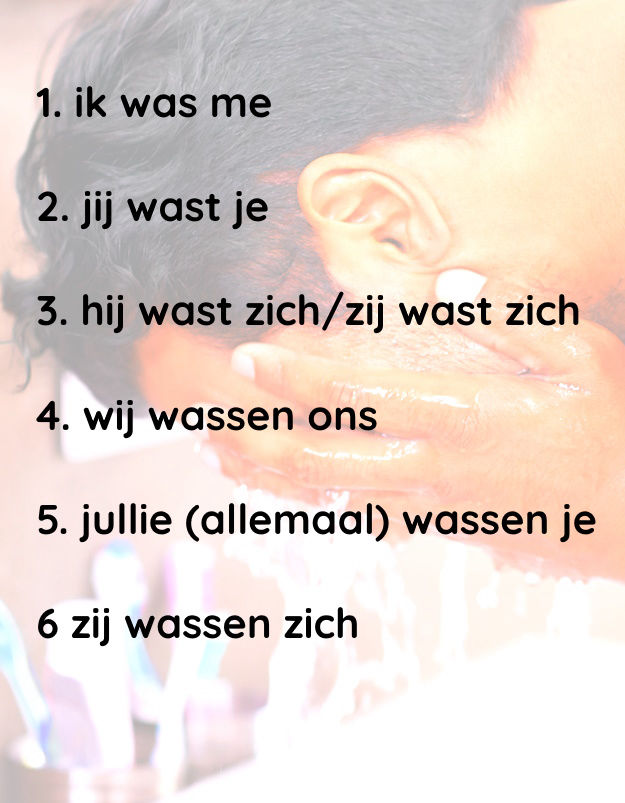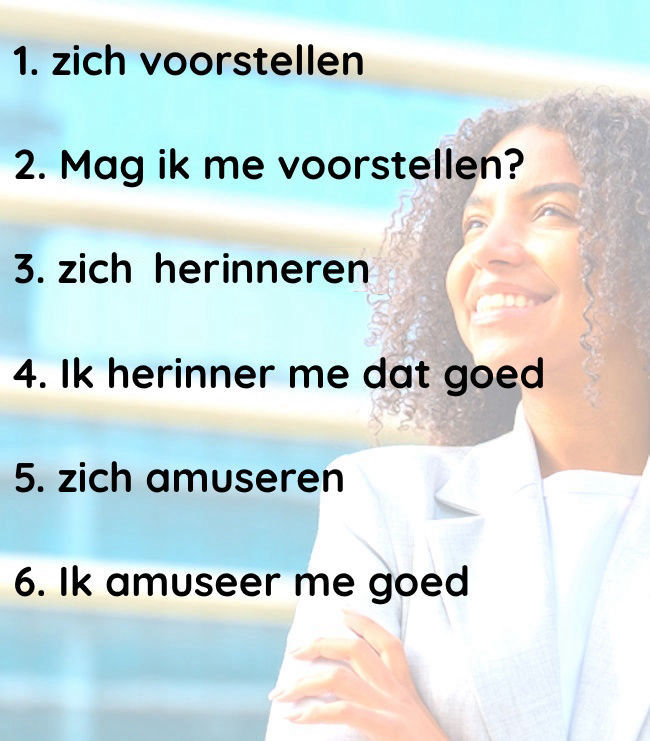
More on verbs

In Dutch, reflexive verbs (reflexieve werkwoorden) are verbs where the subject and the object are the same, meaning the action of the verb reflects back onto the subject. These verbs are often accompanied by a reflexive pronoun (such as "me," "je," "zich," "ons," or "je") that matches the subject of the sentence.
Reflexive verbs are common in everyday Dutch, and understanding them will enhance your ability to describe actions that you or others perform on themselves. Practice using them in sentences to become more familiar with their structure and usage.
Here is our first example:
<<<

1. I wash myself.
2. You wash yourself.
3. He/she washes himself/herself.
4. We wash ourselves.
5. You (all) all wash yourselves.
6. They wash themselves.
<<<

1. to introduce yourself
2. May I introduce myself
3. to remember (yourself)
4. I remember that well
5. having a good time
6. I am having a good time
<<<
tests

1. I wash myself.
2. You wash yourself.
3. He/she washes himself/herself.
4. We wash ourselves.
5. You all wash yourselves.
6. They wash themselves.
<<<

1. to introduce yourself
2. May I introduce myself
3. to remember (yourself)
4. I remember that well
5. having a good time
6. I am having a good time
<<<
Designed with Mobirise - Learn more